The Final Days, the Biggest Issue, and the Clearest Choice
As we go into the final days of a dismal presidential campaign where too many issues have been fudged or eluded, the biggest issue on which the candidates have given us the clearest choice is whether the rich should pay more in taxes.
This post originally ran on Robert Reich’s Web page, www.robertreich.org.
As we go into the final days of a dismal presidential campaign where too many issues have been fudged or eluded — and the media only want to talk about is who’s up and who’s down — the biggest issue on which the candidates have given us the clearest choice is whether the rich should pay more in taxes.
President Obama says emphatically yes. He proposes ending the Bush tax cut for people earning more than $250,000 a year, and requiring that the richest 1 percent pay no less than a third of their income in taxes, the so-called “Buffett Rule.”
Mitt Romney says emphatically no. He proposes cutting tax rates on the rich by 20 percent, extending the Bush tax cut for the wealthy, and reducing or eliminating taxes on dividends and capital gains.
Romney says he’ll close loopholes and eliminate deductions used by the rich so that their share of total taxes remains the same as it is now, although he refuses to specify what loopholes or deductions. But even if we take him at his word, under no circumstances would he increase the amount of taxes they pay.
Obama is right.
America faces a huge budget deficit. And just about everyone who’s looked at how to reduce it — the non-partisan Congressional Budget Office, the bi-partisan Simpson-Bowles Commission, and almost all independent economists and analysts — have come up with some combination of spending cuts and tax increases that raise revenue.
Just last Thursday, executives of more than eighty large American corporations called for tax reform that “raises revenues and reduces the deficit.”
The practical question is who pays for those additional revenues. If Romney’s view prevails and the rich don’t pay more, everyone else has to.
That’s nonsensical. The rich are far richer than they used to be, while most of the rest of us are poorer. The latest data show the top 1 percent garnering 93 percent of all the gains from the recovery so far. But median family income is 8 percent lower than it was in 2000, adjusted for inflation.
The gap has been widening for three decades. Since 1980 the top 1 percent has doubled its share of the nation’s total income — from 10 percent to 20 percent. The share of the top one-tenth of 1 percent has tripled. The share of the top-most one-one hundredth of 1 percent — 16,000 families — has quadrupled. The richest 400 Americans now have more wealth than the bottom 150 million of us put together.
Meanwhile, the tax rates paid by the wealthy have dropped precipitously. Before 1981 the top marginal tax rate was never lower than 70 percent. Under President Dwight Eisenhower it was 93 percent. Even after taking all the deductions and tax credits available to them, the rich paid around 54 percent.
The top tax rate is now only 35 percent and the tax on capital gains (increases in the value of investments) is only 15 percent. Since so much of what they earn is from capital gains, many of the super-rich, like Mitt Romney himself, pay 14 percent or less. That’s a lower tax rate than many middle-class Americans pay.
In fact, if you add up all the taxes paid — not just on income and capital gains but also payroll taxes (deductions for Social Security are capped at $110,100 of income), and sales taxes — most of us are paying a higher percent of our income in taxes than are those at the top.
So how can anyone argue against raising taxes on the rich? Easy. They say it will slow the economy because the rich are “job creators.”
In the immortal words of Joe Biden, that’s malarky.
The economy did just fine during the three decades after World War II, when the top tax rate never fell below 70 percent. Average yearly economic growth was higher in those years than it’s been since, when taxes on the rich have been far lower.
Bill Clinton raised taxes on the rich and the economy did wonderfully well. George W. Bush cut them and the economy slowed.
The real job creators are America’s vast middle class, whose spending encourages businesses to expand and hire — and whose lack of spending has the opposite effect.
That’s why the recovery has been painfully slow. So much income and wealth have gone to the top that the vast majority of Americans in the middle don’t have the purchasing power to get the economy moving again. The rich save most of what they earn, and their savings go anywhere around the world where they can get the highest return.
It would be insane to compound the damage by raising taxes on the middle class and not on the rich.
Logic, fairness, and common sense dictate that the rich pay more in taxes. It’s the key to avoiding January’s fiscal cliff and coming up with a “grand bargain” on taming the budget deficit. And it’s central to getting the economy back on track.
Robert B. Reich, chancellor’s professor of public policy at UC Berkeley, was secretary of labor in the Clinton administration. Time magazine named him one of the 10 most effective Cabinet secretaries of the last century. He has written 13 books, including the best-sellers “Aftershock” and “The Work of Nations.” His latest, “Beyond Outrage,” is now out in paperback. He is also a founding editor of The American Prospect magazine and chairman of Common Cause.
Your support matters…Independent journalism is under threat and overshadowed by heavily funded mainstream media.
You can help level the playing field. Become a member.
Your tax-deductible contribution keeps us digging beneath the headlines to give you thought-provoking, investigative reporting and analysis that unearths what's really happening- without compromise.
Give today to support our courageous, independent journalists.
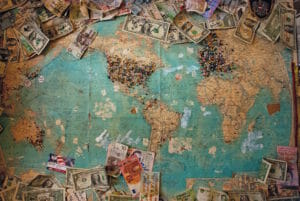
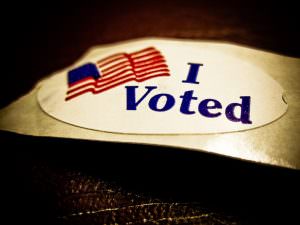
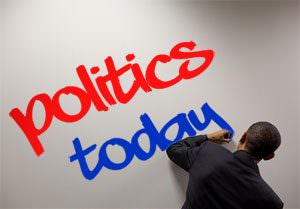
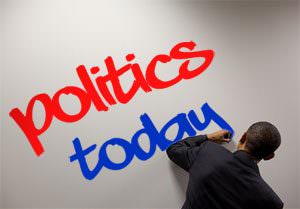
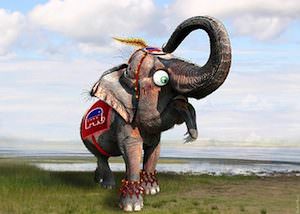
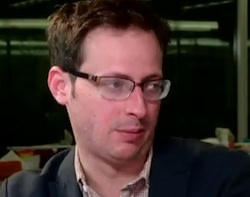
You need to be a supporter to comment.
There are currently no responses to this article.
Be the first to respond.